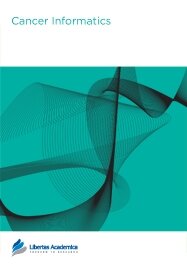

Publication Date: 09 Feb 2015
Type: Review
Journal: Cancer Informatics
Citation: Cancer Informatics 2015:Suppl. 2 11-16
doi: 10.4137/CIN.S17290

The importance of haplotype association and gene–environment interactions (GxE) in the context of rare variants has been underlined in voluminous literature. Recently, a software based on logistic Bayesian LASSO (LBL) was proposed for detecting GxE, where G is a rare (or common) haplotype variant (rHTV)–it is called LBL-GxE. However, it required relatively long computation time and could handle only one environmental covariate with two levels. Here we propose an improved version of LBL-GxE, which is not only computationally faster but can also handle multiple covariates, each with multiple levels. We also discuss details of the software, including input, output, and some options. We apply LBL-GxE to a lung cancer dataset and find a rare haplotype with protective effect for current smokers. Our results indicate that LBL-GxE, especially with the improvements proposed here, is a useful and computationally viable tool for investigating rare haplotype interactions.
PDF (497.34 KB PDF FORMAT)
RIS citation (ENDNOTE, REFERENCE MANAGER, PROCITE, REFWORKS)
BibTex citation (BIBDESK, LATEX)
XML
PMC HTML

Cancer Informatics has become an increasingly important source for research in the methodology of cancer genomics and the novel use of informatics technology. I have been impressed by the journal's contents and have been very gratified by the number of accesses to my recent publication. Cancer Informatics has filled an important gap in cancer research journals.
Facebook Google+ Twitter
Pinterest Tumblr YouTube